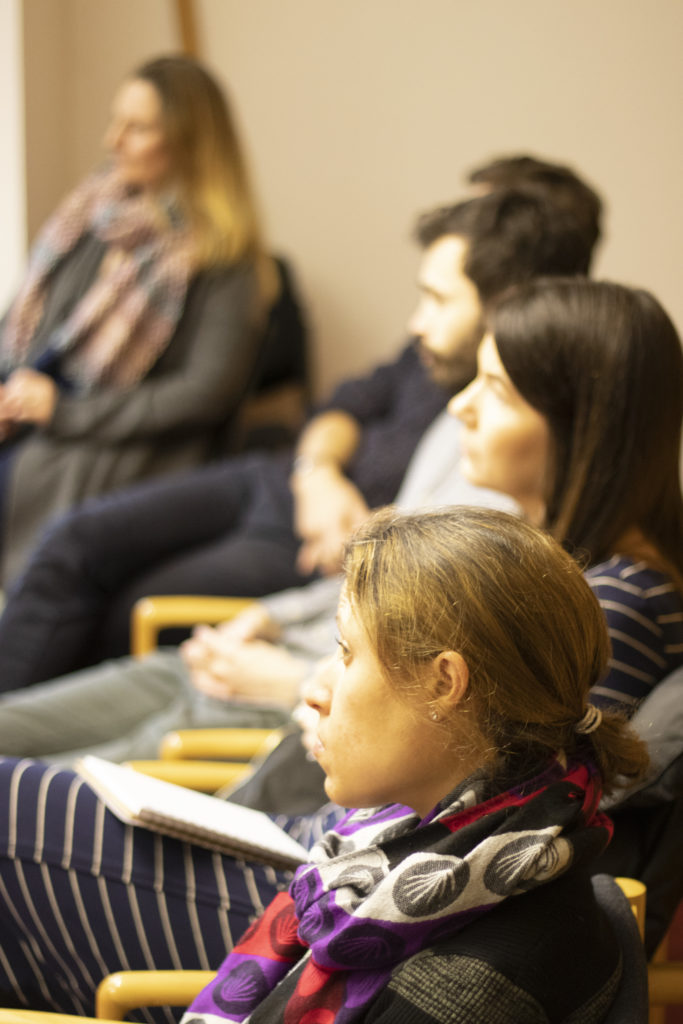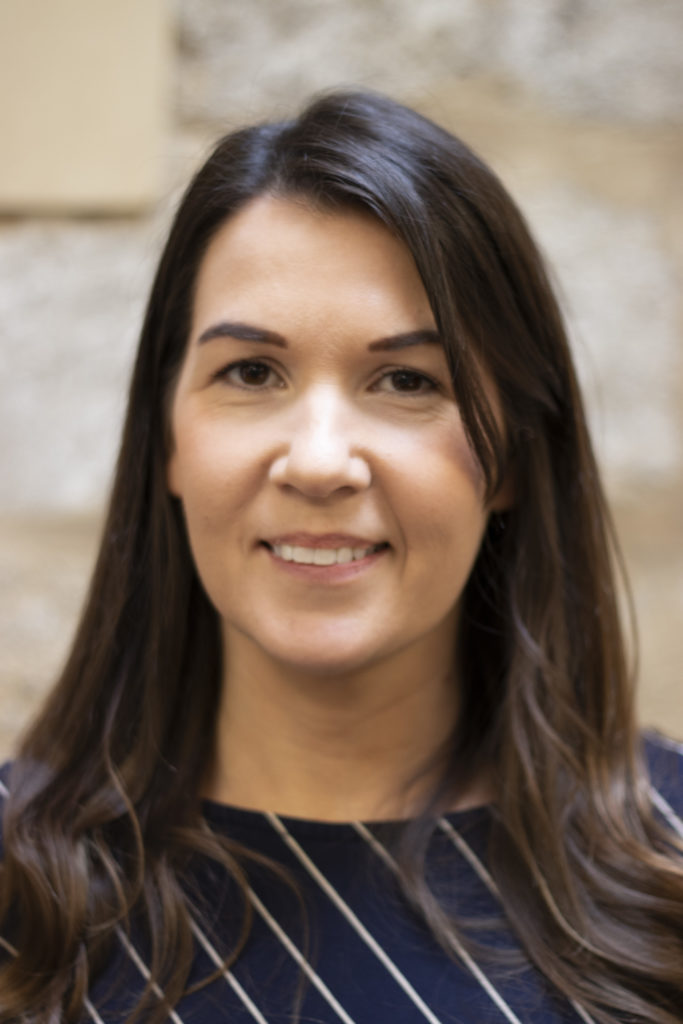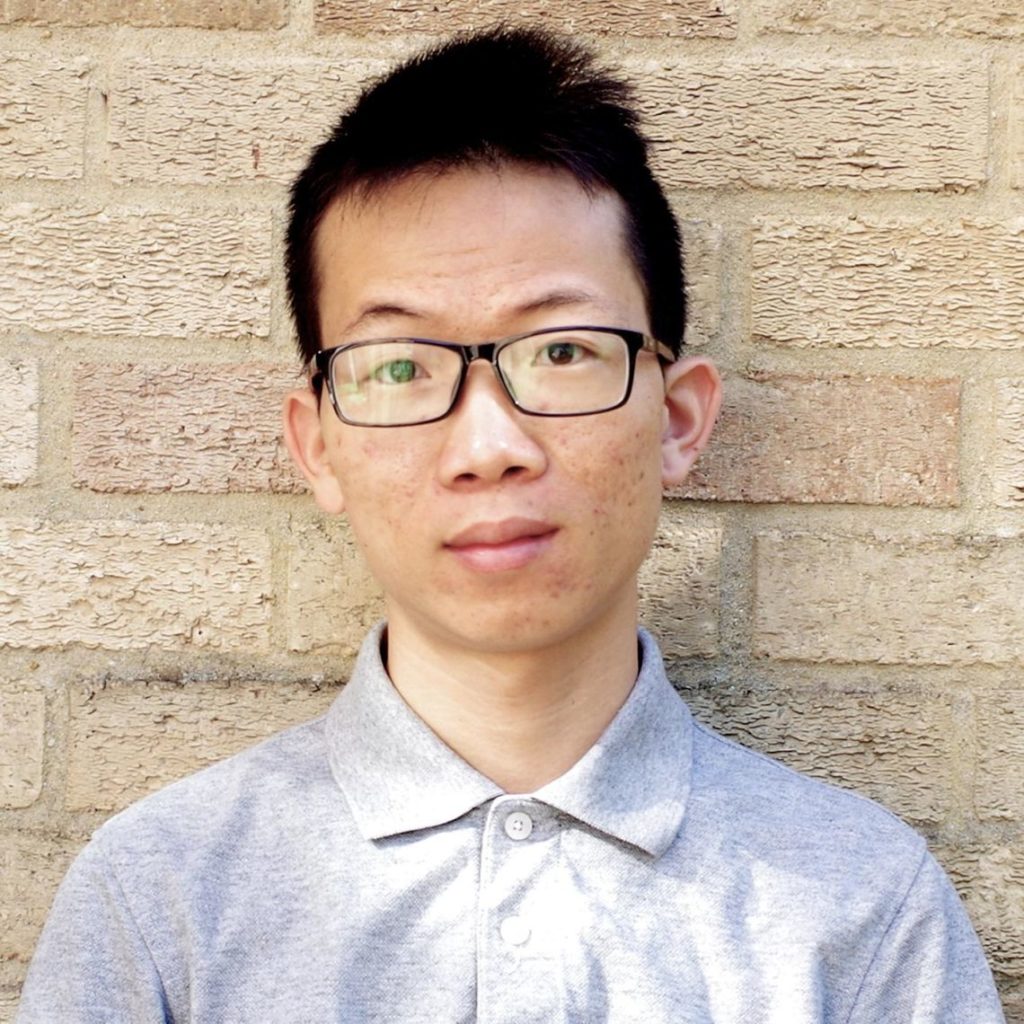At the beginning of January the Oxford Health BRC welcomed 16 delegates from across England to OxCEMM 2020 – our flagship course in experimental medicine for mental health.
Now in its second year the course has been created to provide a practical grounding in experimental medicine for mental health. The training is designed for clinical and pre-clinical staff and trainees, and medical doctors at any career stage. This year’s diverse cohort included participants from a wide range of backgrounds including psychiatry, pharmacy and cognitive behavioural therapy.

The course is taught by expert tutors drawn from across the Oxford Health BRC and covers a wide range of topics, from designing a study and applying statistics to communicating your findings to the media.
Many of this year’s participants were funded by bursaries provided by the NIHR Oxford Health Biomedical Research Centre which covered the cost of tuition, accommodation and meals.
Oxford Health BRC Training lead Professor Elizabeth Tunbridge said ‘OxCEMM is a practical introduction to the many facets of experimental medicine research in mental health and provides an environment where attendees can learn from each other. It was a pleasure to welcome the OxCEMM 2020 attendees to Oxford and I’d like to thank them for their enthusiasm and engagement throughout the course. I look forward to watching their careers flourish!’
OxCEMM 2020 – Participants’ Reflections
Read about the experiences of two of this year’s OxCEMM participants.
[section=Lara Crowther – reflections on OxCEMM]

Lara Crowther is currently a PhD student in Med Ed at Leicester Medical School. Her work focuses on the introduction of Mindfulness as part of a lifestyle programme in core medical curriculum. Lara has a background in Cognitive Neuroscience, Psychology and Medical Sciences and is also a Yoga Teacher and Personal Trainer, with an interest in the mind-body connection for mental health.
What it’s like to participate
OXCEMM was extremely inclusive, with a relaxed approach from the start. Keeping the numbers down created a perfect environment for group cohesion, developed over the course through a range of small group work activities. Teaching expertise was evident in the way complex ideas were described and explained simply, irrespective of participant research background. Questions were welcomed with enthusiasm and openness.
What was most notable was the passion that those involved in the course had for their work and the high level of collaboration, both within and between research groups. Choosing course participants with varying research interests and at differing stages of their career highlighted the importance of multidisciplinary team-working to gain further insight and different perspectives on problem-solving in experimental medicine. Not only did the course provide specific guidance on experimental medicine for mental health, but also included more generic sessions to learn about ethics, governance, grant writing, how to disseminate research using social media and the importance of open science. The mixed approach of lectures and practical workshops worked well. I came away better prepared to design, implement and critique experimental medicine research.
Why I took part in OXCEMM
The advert for OXCEMM via the British Neuroscience Association caught my attention. Despite it not having a direct link to my PhD project, it appealed to my wider interest in mental health research. I was particularly intrigued to learn about the work being conducted within psychological therapies and current approaches in cognitive neuroscience. I saw OXCEMM as a perfect opportunity to broaden my knowledge, meet with researchers from a multitude of disciplines and take back something of value, both for myself and to inspire our medical students at Leicester. The course certainly provided that opportunity.
Highlights
A particular highlight were the lab tours, which gave participants the chance to further explore the various techniques and tools being used across the psychiatry department to address experimental medicine for mental health questions. This included tours of neuroimaging, genetic and molecular studies and the virtual reality lab – an experience that must be tried!
The panel Q&A at the conclusion of the course was very welcome. The opportunity to ask more personal questions about navigating your way through a research career, including topics such as job precarity, paper and grant rejections, and how to balance work with other aspects of life, was useful and the panel were forthcoming and honest about the reality of a research career, its drawbacks but also its great rewards.
[endsection]
[section=Shenghong He – an OxCEMM diary]

Shenghong He graduated with a D.Phil. in Engineering from South China University of Technology in December 2017. His graduate work has mainly focused on EEG-based real-time asynchronous brain-machine interfaces (BMIs). In May 2018, Shenghong joined Dr Huiling Tan’s Group as a Postdoctoral Research Scientist based at the MRC Brain Network Dynamics Unit and Nuffield Department of Clinical Neurosciences in University of Oxford. Shenghong’s current research is focused on developing BMIs based on subcortical local field potentials recorded from patients with Parkinson’s disease or essential tremor, and testing the efficacy of these new BMIs in neuroprosthetic control, neurofeedback training, or deep brain stimulation (DBS).
5th January 2020
Early on a Sunday morning after the Christmas and New Year holiday, when I still felt I was still struggling with holiday syndrome, OxCEMM 2020 launched. The course included nine talks covering different aspects of experimental medicine for mental health including: study design, governance, ethical approval, and study approaches, all carried out in a single day.
I am sure you can imagine how intense it was. But it also turned out to be so enjoyable! Most of these individual talks started with basic ideas/questions followed by a simple example, and then ended by some clear take-home information. I loved them!
On the first day of this course, I met people from different backgrounds including psychiatrists, clinicians, therapists, researchers, and project managers. We shared experience and stories and discussed specific issues in mental health. In addition to the course itself, the organizer also provided services including accommodation, transportation, and meals during the course, which was really helpful, especially for the attendees from outside of Oxford.
6th January 2020
The second day of the course started with a group discussion covering the design, potential approaches, and use of statistics on a drug study about antidepressants. Although it was not related to my own work, it was still useful for me because this provided me an opportunity to apply the key points highlighted on the first day. After this, Dr Hyndman gave a talk on grant application and led a session on reviewing a prepared application.
Although I thought it might be a bit too early for me as a junior postdoc to apply for a grant, I still found this session helpful in terms of preparing research papers. In the afternoon, we had group tours of facilities and labs, which was amazing! We were in a small group ofonly three people and visited the imaging lab, fMRI lab, biomedical lab, and the virtual reality (VR) lab within the Oxford Health Biomedical Research Centre. This was my first time wearing a VR headset and it was so impressive.
7th January 2020
The last day started with a talk on a VR-based study onstress, which was well linked to the group tours to the VR lab we had done the day before. This was followed by another group discussion about the strengths and weaknesses of a proposed study. There then came two very interesting topics on data sharing for open science and communicating research findings to the media.
These general topics, which I had not previously considered, were well delivered by the tutors who combined them with overviews of their research. I had a 1-2-1 session with a senior researcher, and another 1-2-1 session with an experienced PPI contributor to discuss my own project, both of which I found were quite helpful.
Finally, after a Q&A panel, the course was summarized and closed at about 3 pm. In summary, I think it is a wonderful course and I got even more than I expected from it. I would really like to thank all tutors in this course, in particular, Professor Elizabeth Tunbridge and Tamara Lewin, for their contribution and organization of this great course!
[endsection]
To register your interest in future courses or for more information please email oxcemm@psych.ox.ac.uk.
OxCEMM is provided in collaboration with the the Wellcome Centre for Integrative Neuroimaging.

